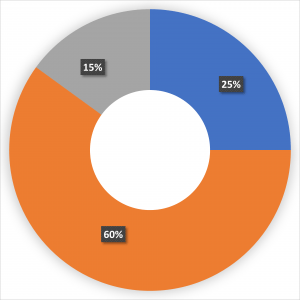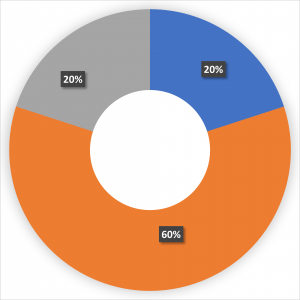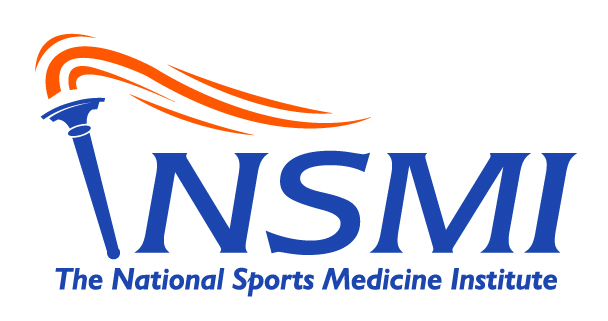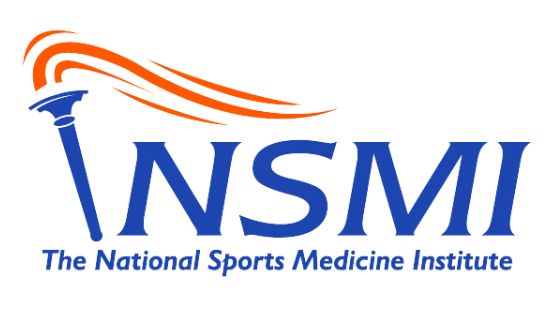
It’s our mission to improve the health and wellbeing of all our athletes so this month we asked Coach Copley for some key nutrition points and tips to keep running athletes healthy. Here’s what he had to say about sprinters, distance runners, food tips, hydration, sleep, and supplements!
TLDR: Key Points
+ Proper fueling decreases injury risk.
+ Proper nutrition improves energy stores and decreases fatigue. Fatigued athletes are more likely to suffer injuries.
+ NO one should unintentionally lose weight during a competitive season.
+ Eat appropriate calories for your body type and metabolism. How do you find this? Get a Resting Metabolic Rate + Active Metabolic Rate Testing and a DXA Scan with NSMI!
For Sprinters
Don’t be afraid to eat carbohydrates! Glucose is the preferred fuel source for higher intensity exercise.
Sprinters should aim to eat carbohydrates at every meal of the day and snack to keep energy (glycogen) stores high. If you are eating Keto or low carb you may not have sufficient glycogen stores!
Fats are also extremely helpful for a sprinter’s fuel. Healthy fats are needed for a balanced diet. Fats should never drop below 15% of caloric intake for sprinters. Why? Because fats contain 9 calories per gram. The athlete can hit their caloric requirements more easily. And healthy fats are often anti-inflammatory.
How Can I Improve my Sprinting?
A great way to improve sprinting is to properly fuel yourself before and after a run. Fuel your muscles with healthy carbohydrates 1-3 hours before a run such as oatmeal, pasta, smoothies, or fruit. Replenishing your body’s carbohydrate energy stores after a run can help you build your stores so you can run harder, faster, and longer next time. Similar to carb loading before a race – improve upon glycogen stores.
Refuel post race with;
- a chicken veggie wrap
- baked sweet potatoes
- assorted vegetables and hummus
- a peanut butter and jelly sandwich
- whole wheat crackers
Similar to other athletes, sprinters need protein to meet the demands of training. Protein plays a unique role in recovery to help rebuild damaged muscle and tissue.
To find your daily protein requirements for a sprinter use the equation below:
0.8 x bodyweight (in lb) = grams per day of protein.
Ideally you’re looking for about a 3:1 carb to protein ratio for all your recovery meals.

Sprinter Macronutrient Profile
15+% fats
25% protein
50 – 60% carbs
For Distance Runners
Carbs are your main source of fuel but fats are more important.
Your body breaks down carbohydrates to form glucose, the main source of running energy. A limited amount of glucose can be stored as glycogen in the body. The term, “hitting the wall”, where a runner’s performance significantly decreases, comes from the depletion of body glucose and glycogen. This doesn’t typically happen until after 5 kilometers (or 3.1 miles) of running.
Pre Race Meal
Distance runners will want to plan to eat about 3-4 hours before their event. This should be a well balanced meal with good amount of carbohydrates and healthy fats.
Snacks can be consumed1-2 hours before a race or workout.
Running on an empty stomach can lead to fatigue, lightheadedness and poor performance.
This snack or light meal should be high in carbohydrate and moderate in protein. Avoid highly processed snacks that are high in fiber, saturated fat, sugar, sugar alcohols and lactose if lactose intolerant. These types of foods can impair running ability through digestive issues.
Examples of healthy snacks include:
- Bagel with peanut butter
- Greek yogurt with fruit
- Egg on toast
- Banana with almond butter
- Tortilla with lower-fat cheese
- Waffles (my personal favorite)
Snacks work just as well between events if time permits.
To find your daily protein requirements for a distance runner use the equation below:
0.6 x bodyweight (in lb) = grams per day of protein.
Use a 4:1 carb to protein ratio when planning your meal or snack.
It’s important to note that it takes approximately 24-36 hours to replace glycogen stores after a race. This can be quicker if the athlete eats within 30 minutes of completing competition.
Distance Runner Macronutrient Profile
20% fats
20% protein
60% carbs

Don’t Know What to Eat? Try These!
Carbohydrates
Whole-grain bread
Pasta
Spinach
Kale
Broccoli
Berries
Sweet potato
Beans
Proteins
Lean meat
Poultry
Fish
Eggs
Soybeans
Quinoa
Oats
Fats
Olive oil
Avocados
Nuts and seeds
Fatty fish (i.e. salmon, tuna)
Full-Fat Yogurt
Cheese
Gluten-Free Carbohydrates
Rice
Potatoes
Legumes
Edamame
Quinoa
Oats
Fruit
Soy
Peas
Lentils
Avoid MOST of the Time
Fatty foods and fried foods such as fries, burgers, fried chicken, bacon (and other saturated fats)
Sugary foods and treats
Soda and other sugary beverages
Highly processed snack foods
Avoid Before Practice and Competition
Carbonated or sugary beverages
Gassy foods (beans, hummus, broccoli, cabbage, cauliflower)
Spicy foods (depending on personal tolerance)
Excessive caffeine
Excessive supplements
Dairy products- for individuals who are more sensitive
High fiber foods (such as beans, lentils, some whole grains, seeds, broccoli)
Hydration
One basic way to measure hydration need is to weigh yourself before and after the event.
Weight losses of even 2% can result in decreased performance. It’s important to start and finish the event hydrated. Smaller athletes may be at increased risk for becoming over- or under-hydrated.
A good rule of thumb for all athletes is to drink ½ -¾ cup (4-6 oz) of water every 15-20 minutes throughout the day.
It’s also a good idea to drink a sports or electrolyte drink every 2 hours of activity.
Sleep
Your body recovers and rebuilds muscle when you sleep.
Develop healthy consistent sleeping patterns early.
Try to get at least 8 hours a night. 9 to 10 is better.
Your body thrives on a routine, try and go to bed, and get up, at the same time everyday.
Supplements
Bloodwork should be done prior to using supplements. Supplements should only “supplement proper nutrition” they don’t replace proper nutrition and eating habits.
Multivitamins are okay, but won’t replace nutritional needs from healthy foods.
Whey Protein can be helpful if you are not eating a lot of lean meat, but should never replace protein from meat.
Liquid Iron (especially for girls) can help prevent anemia.
References:
Food for middle distance running. Sports Dietitians Australia (SDA). (2021, September 23). Retrieved February 9, 2022, from https://www.sportsdietitians.com.au/factsheets/food-for-your-sport/food-for-your-sport-middle-distance-running/
Harmer, RDN, K. (2021, June 20). What should teen sprinters eat? Fueling Teens -Nutrition and Wellness for Teens. Retrieved February 9, 2022, from https://www.fuelingteens.com/what-should-teen-sprinters-eat/
Slater, G. J., Sygo, J., & Jorgensen, M. (2019, March 1). Sprinting. . . dietary approaches to optimize training adaptation and performance. Human Kinetics. Retrieved February 9, 2022, from https://journals.humankinetics.com/configurable/content/journals$002fijsnem$002f29$002f2$002farticle-p85.xml?t%3Aac=journals%24002fijsnem%24002f29%24002f2%24002farticle-p85.xml
Tipton, K. D., Jeukendrup, A., & Hespel, P. (2007, December). (PDF) nutrition for the sprinter – researchgate. ResearchGate. Retrieved February 9, 2022, from https://www.researchgate.net/publication/51392722_Nutrition_for_the_sprinter

